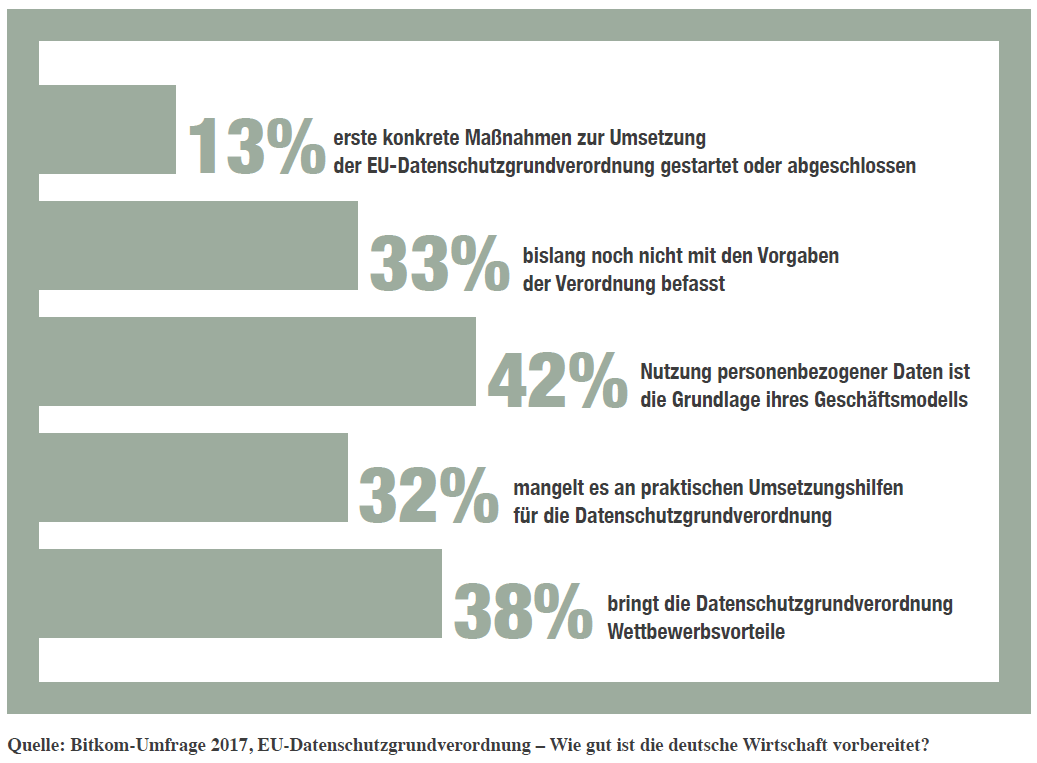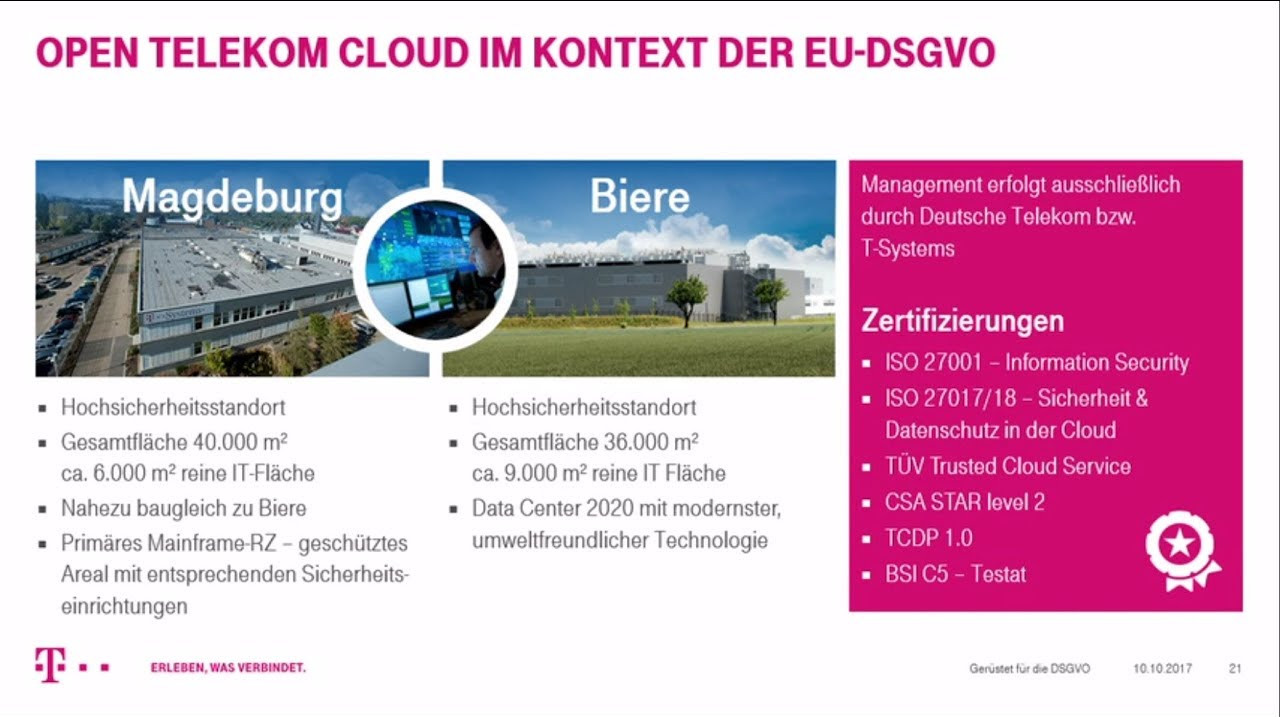The EU's new General Data Protection Regulation (GDPR) will enter into force on May 25, 2018. However, figures released by Bitkom, the business association of the German IT sector, suggest that only 13% of German companies have made suitable preparations, and one third have not even considered the GDPR's impact. Time is running out, so a growing number of companies are turning to public cloud solutions. While these solutions do not absolve business from their obligation to put the GDPR into practice, cloud solutions can provide considerable support when it comes to protecting data.
In this article you will read more about the following toptics:
- New options for storing and processing data
- Privacy by design
- Webcast and FAQ about the GDPR
- Questions and answers on the GDPR

